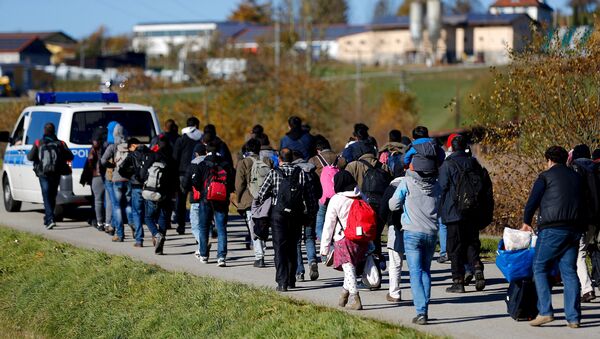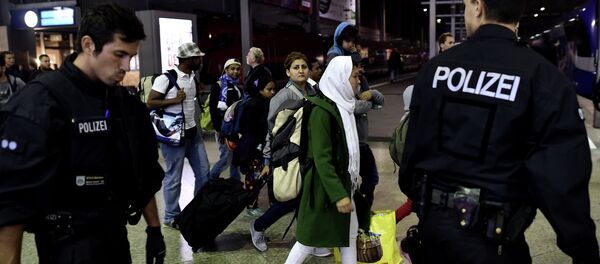The printing of the handbooks cost around 50,000 euros ($57,000) and was paid for by donations collected by the Red Cross and Austria's ORF national service broadcaster.
Mohamed, a 27-year-old asylum seeker from Iraq, told Austria's Kurier newspaper that being able to check information in the handbook is "very important," and "can save me a lot of mistakes in the future."
The first chapter of the handbook, which is also available online and as an audio recording, contains information about the Austrian state and public festivals, and is followed by chapters on "Rights and Duties" and "Equality."
Migrants are told that "Austrians eat a lot of pork, and also beef, chicken, turkey and lamb," and also that "many people drink beer or wine, particularly in the evenings."
The Equality chapter has a particular focus on gender equality, and reminds newcomers that "men and women have equal rights in Austria."
It tells newcomers that "it is usual to extend your hand to men and women when greeting them," and that "in Austria, it is normal for women to be on the street without a veil."
"That was the same in Baghdad, where I am from," Mohamed, who worked as an English teacher, commented, regarding the advice about veils.
The booklet provides particularly useful advice about the health service, he said, since in Austria it is normal to visit a general practitioner rather than a hospital for non-emergency diagnosis and treatment.
"That is different in Baghdad."
Other chapters focus on schooling and everyday life in Austria, including a section explaining Austrian mobile phone contracts, and where to buy halal food.
"That is very, very important," Mohamed said.
"I don’t know what kinds of meat there are here, and where I can buy halal meat."
The booklet includes other useful information about everyday life, including how to greet people, use public transport, advice on punctuality and a section on the popularity of cats and dogs as domestic pets in Austria.
"Refugees have to understand how Austria works," Gerald Schopfer, President of the Red Cross, told Kurier.
"Integration is always a social task. It is not just the responsibility of the asylum seekers, it needs the majority population, too," Schopfer said.







